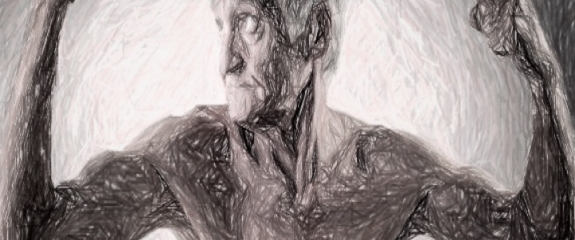Creating a strong future for frailty

Frailty is a debilitating, age-associated condition that is both challenging to treat and a burden on patients and carers. The term is accepted by then general population as representing members of our society made feeble by age but it also represents a clinical syndrome presented in older adults with progressive loss of their functional reserve, increased vulnerability and decreased resilience to stressors. This loss of functionality is associated with a series of adverse outcomes, such as falls, fractures, hospitalizations, cognitive decline, and even death. The impact it can have on an individuals’ quality of life can be significant, as well as, multifaceted, It can have marked medical, social, financial and public health implications. With an ageing population it is an imperative to develop better ways to detect the symptoms in their early onset, it is expected that this would be when the syndrome is most reversible, or at least when it will be possible to introduce interventions that will make it manageable.
The impact that an ageing population is going to have on societies across Europe in the next few decades has been recognised by the EU government, which has responded to the challenge by investing in a series of large and imaginative research projects in the elderly and in age-related disease like diabetes through projects like MID-Frail, FrailSafe and Frailomic using Horizon 2020. Niche has been the leading CRO partner in these investigator-driven studies. MID-Frail was a major international research study examining the effectiveness of combining optimised medical management with exercise and dietary programmes to maintain function and quality of life in people aged 70 years with Type 2 diabetes. The study is now complete and the findings will be published later this year. The FRAILOMIC initiative was designed to use biomarkers to determine the factors that turn frailty into disability. The main objective was to develop clinical instruments to predict the risk of frailty, improve the diagnostic accuracy of frailty in day-to-day practice, and to assess the prognosis of frailty in terms of disability and other adverse outcomes. The bench work for this study is now complete and it has already generated nearly 20 scientific publications - many more are planned along with several intellectual property submissions. The EU FrailSafe project, launched in 2016, is an on-going, longitudinal study, which explores an innovative solution to detect, quantify, manage and prevent frailty. EU FrailSafe offers an integrated paradigm employing both clinical and technical data sources and real- time processing of that data via an online platform offering individualized feedback to the patient.
From a healthcare perspective, the findings of these types of studies are expected to have many benefits. Firstly, the early detection of frailty is a key in the prevention and management of the syndrome. Also, as deterioration can be detected early on, the costs of acute treatments for falls, fractures and hospitalizations can be reduced drastically. Furthermore, the findings promote mobility, engagement and cognitive training keeping older adults active and technologically competent, increases autonomy and limits dependence on caregivers. Through a multilevel approach, these initiatives are expected to prevent deterioration and social isolation by detecting differentiations in patient’s social patterns. In addition, the findings offer assistance to caregivers and family members in managing and monitoring the patient’s health care status, limiting their burden, as well as, a way for efficient and real-time monitoring for the healthcare professionals.
Finally, these studies have been conducted in the patient’s environment, the findings are relevant and so can be adapted to everyday life. It is expected that the data will eventually combine to form a resource that can be interrogated to help improve older adults’ quality of life and the quality of healthcare services, in a cost-effective and age-friendly manner.


